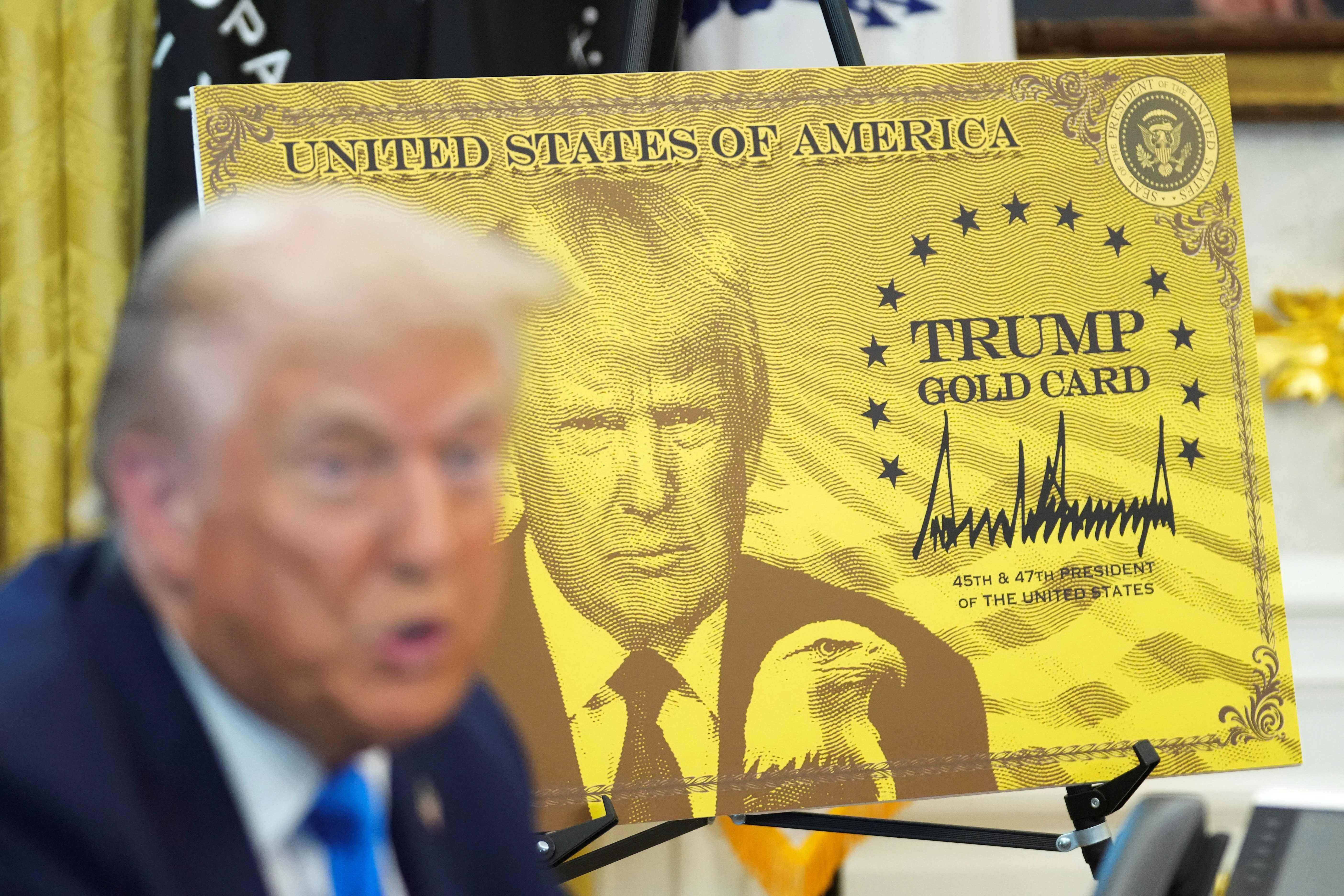The screenwriter for the 1971 cult classic film “Willy Wonka & the Chocolate Factory” – which famously involves children receiving golden tickets – slammed President Donald Trump’s “Gold Card” visa program for wealthy migrants as “anti-Willy Wonka,” and argued the film would have been a flop should its own golden tickets have been similar to Trump’s.
Trump first floated the idea of introducing the Gold Card visa program in February, suggesting migrants could purchase a Gold Card for $5 million to secure American citizenship. His administration ultimately implemented the idea in September, though reduced the price to $1 million, and revealed the design of the Gold Card bearing Trump’s image alongside a bald eagle and the Statue of Liberty.
For David Seltzer, however, the lead screenwriter to the 1971 cult classic, the Gold Card visa program was antithetical to everything that's represented by the film he wrote more than five decades ago.
“It’s the anti-Willy Wonka,” said David Seltzer, who was brought onto the film to rewrite its screenplay later in its development in an uncredited role, speaking with The Washington Post in a report published Wednesday. “If Willy Wonka were asking $5 million to give someone a gold ticket, this movie wouldn’t have flown.”
While Trump has never directly mentioned “Willy Wonka & the Chocolate Factory" in relation to his Gold Card visa program, commentators drew immediate parallels between the two given that the golden tickets in the film granted children – rich or poor – equal opportunity to tour an iconic candy factory and win a lifetime supply of chocolate, which commentators likened to earning American citizenship.
“It’s the realization of opportunity for a poor boy, for a boy whose family is suffering and who can’t catch a break,” Seltzer said. “What it represented is what everyone hopes for: a break.”
Trump has also introduced the “Trump Platinum Card,” a premium version of the Gold Card that sells for $5 million, but grants its holder with generous tax exemptions.
The entire concept, along with its obvious parallels to the 1971 film’s golden tickets, flew in the face of what the path to American citizenship has represented for generations, argued Debbie Millman, who leads the branding program at the School of Visual Arts.
“Both the brand of America and the brand of Trump are being merged into this symbolic gesture,” Millman said, speaking with The Washington Post. “The gold card reframes America as a luxury product, a gated community of privilege, rather than a frontier of possibility.”
